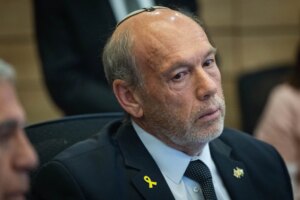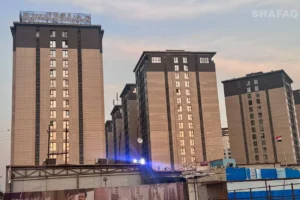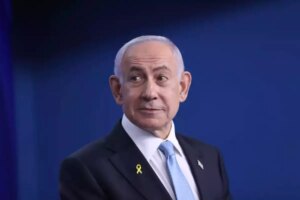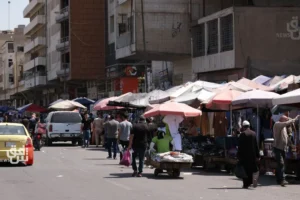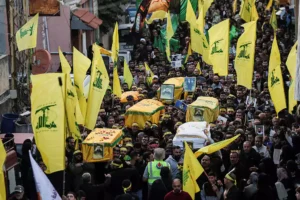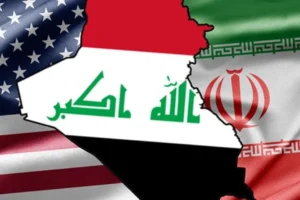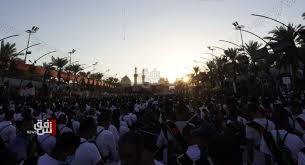
2025-07-21T19:14:44+00:00
font
Enable Reading Mode
A-
A
A+
Shafaq News
Karbala, one of Iraq’s most sacred
cities, is struggling with intensifying shortages in water and electricity as
it prepares to host millions of pilgrims for the Arbaeen commemoration next
month. With temperatures soaring and infrastructure under strain, both
residents and officials have raised concerns about the city’s readiness to
accommodate the massive influx.
Home to around 1.3 million people
and covering nearly 5,000 square kilometers, Karbala annually becomes the focal
point of one of the world’s largest religious gatherings. The Arbaeen
pilgrimage, which falls on Friday, August 15 this year, marks the 40th day
after Ashura and commemorates the martyrdom of Imam Hussein Ibn Ali, the third
Iman for Shia Islam.
In 2023, the city received more than
22 million pilgrims; last year, close to 21 million arrived, many traveling on
foot for days. Similar figures are expected this year.
But as preparations move forward,
the city is reeling under basic service disruptions. “Karbala is going through
one of its worst periods due to electricity shortages and water scarcity,”
warned MP Jawad al-Yasiri, who represents the province, in a briefing with
Shafaq News. He explained that while a parliamentary committee had been formed
to improve services during Arbaeen, no tangible progress has been made.
The most recent crisis stemmed from
a malfunction in a pipeline linked to a major water project, triggering a sharp
drop in supply. The situation was further exacerbated by diminishing water
levels in both the Al-Husseiniya River and the Euphrates—Karbala’s primary
water sources—combined with high evaporation and increasing demand during the
summer heat.
MP Zuhair al-Fatlawi, also from
Karbala, emphasized to Shafaq News the national scale of the issue. “The
electricity crisis is not limited to Karbala; it affects most provinces.” With
Iranian electricity imports decreasing and domestic demand spiking, the system
has come under enormous stress.
“In Karbala, efforts are underway to
boost supply by connecting additional power lines through the Middle Euphrates
Distribution Directorate,” he continued.
Water scarcity, meanwhile, mirrors a
deeper national challenge. Iraq’s reserves have shrunk to 90 billion cubic
meters, down from more than 350 billion in previous decades. The Ministry of
Water Resources is currently releasing around 740 cubic meters per second,
while inflows from upstream countries are less than 300.
“Iran has halted releases
completely, while inflows from Turkiye and Syria are insufficient,” al-Fatlawi
elaborated, warning that “Without capable negotiators and long-term agreements,
Iraq might one day need to offer oil in exchange for water.”
Public Discontent
Across Karbala, residents have begun
to voice frustration. In one district, Umm Ali described to our agency how
essential services have ground to a halt. “There has been a complete water
outage in our area for two days,” she reported, highlighting that “With
continuous power cuts and extreme heat, people are now buying drinking water
just to get by.”
She also accused local authorities
of neglecting peripheral areas, stating that “We keep hearing promises of
better services, but nothing changes.’’
“The local government is absent and
does not respond to our complaints,” she added, warning that growing discontent
could soon boil over into protest.
However, officials have sought to
reassure the public. Mohammed al-Masoudi, a member of Karbala’s Provincial
Council, clarified to Shafaq News that recent power outages are temporary and
tied to infrastructure upgrades.
“These cuts are linked to new
electricity projects being finalized in preparation for the Arbaeen
pilgrimage,” he noted, pointing out that Karbala’s water share has been
officially increased. “The enhanced releases began yesterday and will continue
rising from 1 Safar (Sunday, July 27), reaching their peak by 7 Safar
(Saturday, August 2). We expect no water shortage during Arbaeen.”
While local authorities insist that
services will stabilize before the pilgrimage, pressure is mounting. Welcoming
millions of pilgrims demands coordination across transport, health, security,
and essential utilities—yet even water and electricity remain uncertain.
Written and edited by Shafaq News
staff.
